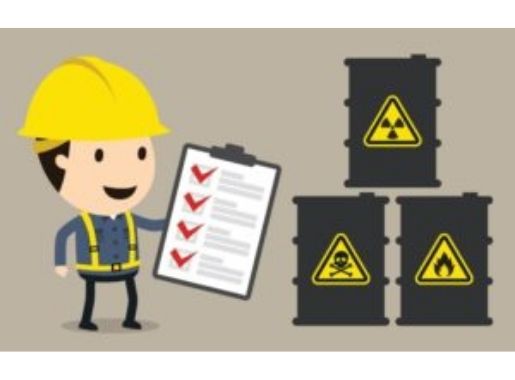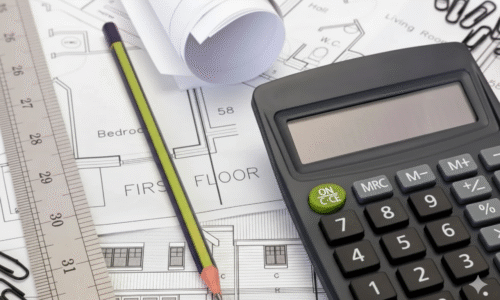The construction process requires the hands-on presence of many professionals. Among them, construction cost estimators who are crucial to the process. Without construction cost estimators, the construction process might never take off.
A construction cost estimator works with other players in the construction industry like clients, architects, vendors, and contractors. The main task that cost estimators perform is to outline the costs of a project. Construction cost estimators re an essential part of the construction industry and their importance cannot be understated.
For people with little knowledge of the construction process, a building cost estimator may not seem as important. Therefore, we’ll break down the role of a construction cost estimator to help people understand what they do and how important they are to the construction process.
Construction Estimating

To start off, it is important to understand what construction estimating is. Construction estimating is the process of estimating costs for materials, subcontractors, and labor for any construction project.
These estimations help shape the construction budget as well as provide a timeline that the project is expected to be completed.
Construction estimators are imperative to this process and play a central role in every construction project, regardless of its size. An estimator provides an estimate for the client. The estimate outlines details of the costs that the client will incur for the project.
When explained, the construction estimation process seems simple, however, it is a complex process that must balance many factors and considerations and produce accurate estimates. An estimate determines the success of the project. Inaccurate estimates often cost clients more money and contractors incur losses.
When formulating a construction estimate, cost estimators know that the conditions and circumstances can change at any time, which sends them back to the drawing board. When this happens, projects experience delays and changes in the cost of construction.
Construction cost estimators must always use their skills and experience to account for uncertainties during the project, and that is no easy task. The work of a construction estimator, therefore, extends to known and unknown factors. With this in mind, the estimator then arrives at the closest possible costs for a construction project.
For accurate and seamless estimation, construction cost estimators must first consider the size of the project, as well as its scope. With this in mind, the estimator can tall all the materials necessary for the project and in what quantities they are required. Moreover, this then helps the estimator consider the market price of the materials.
Contact us for a Professional Construction Cost Estimator Perth, Australia call us on 0498 202 445 or email us at info@measuremanage.com.au

Secondly, estimators assess labor required for a project and the labor costs. This is derived from an estimate of the length of time the project will take to complete. Both of these roles are crucial and help outline the final costs of a project. The accuracy of the cost estimate impacts the success of the contractor working on the construction.
Each step of the construction estimating process is vital and should be approached with careful consideration. All the factors that an estimator will consider should be expertly examined. The estimator must also have sufficient knowledge of construction estimating and put into consideration the wishes of the client. As a matter of fact, a construction estimator should also consider things like the weather when providing a cost estimate.

A construction cost estimator should always create a list of materials required. This makes it easy to keep track of estimates and check off materials as the estimates are made. Material take-off lists the materials and their costs.
To build a takeoff, construction cost estimators study the blueprints and schematics of the project then create a comprehensive list of all materials.
The materials include hinges, wood for framing, wiring, plumbing and all other construction materials needed for the construction. With the comprehensive list, the estimator then begins to check and compare the market prices of the materials.
The prices assigned to materials must be close to the anticipated costs of the project since the client is working with a budget. Moreover, the estimated costs should also be close to the future costs of the materials in case material costs fluctuate.
The cost estimation process does not end with the list and estimated costs of materials. The construction estimator must also factor in the weight of the materials and logistics of moving these materials. The estimator must also consider whether the materials need any more fine-tuning before they’re used for a project.
The takeoff process is not simple, it takes a lot of time and can be tedious. Inaccurate takeoff discredits the whole estimation process. It is essential that takeoffs are accurate because they determine how a construction estimator arrives at the final costs of the project.
Most of a construction estimator’s time is spent on the takeoff. They must account for every single material needed and individual costs estimates of every material expected to be used for the construction. The risk of cost overages can be minimized with care when materials can be quantified. However, materials are the easy part of the estimation process. The cost estimator must assess many potential risk factors that aren’t as quantifiable as the materials.

Over and above estimating the cost of the project, a construction cost estimator is also tasked with anticipating delays, risks and any excessive costs that may arise during the construction. This is no easy task and therefore estimators must rely on their expertise for these factors.
The completion timeline for the project is another area that the construction cost estimator must determine. For this, the estimator works closely with the project contractor and client to the project completion date.
A large part of a construction cost estimator is to predict and anticipate the future. For instance, delays in the production of materials for the construction. While it is impossible to predict the future and the weather accurately, estimators rely on their educated guesses to inform their estimates.
In a very basic sense, construction estimators have a job that requires them to weigh known and unknown factors. They should anticipate risks and how every little fluctuation in weather or costs impacts the final costs and timeline of the project. The estimator must also assess the impacts on any future regulatory changes on the construction process.
With this in mind, an estimator must have a deep understanding of the extent of the forces within and outside the construction industry. They must also possess the ability to work with teams of people and take into account their contributions to the construction process.
It, therefore, goes without saying that construction cost estimating is a position that requires highly professional individuals who possess the skills, expertise, and patience for the process. Estimators generally work their way up the construction industry. However, there are many career paths that can lead you to construction cost estimating. That said, estimators must first have a firm grasp of mathematics and engineering.
Communication is also a crucial skill for estimators since they have to work with clients, contractors, vendors and many other professionals in the construction industry. Data distillation is the icing on the cake for estimators. The estimator must be able to render data readable for presentations. They must be able to come up with professional reports that detail the analysis of the project and the estimation process.
Construction cost estimation is therefore very imperative to the financial success of contractors and the timely completion of any project.
Contact us for a Professional Construction Cost Estimator Perth, Australia call us on 0498 202 445 or email us at info@measuremanage.com.au

Estimators and the Construction Industry

The construction industry is complex and extensive. It is an assembly of many moving parts and without one of these parts, the industry would crumble. Estimators are a crucial part of the industry. Therefore, professionals in the industry cannot afford to downplay the importance of estimation.
Modern construction is very highly volatile and unpredictable, which is basically what estimators do. The speed at which changes occur in the construction industry requires skilled professionals to help assess risks and anticipate these changes before they take shape.
It is important to acknowledge that cost is the number one driver of the construction industry and every little fluctuation impacts cost.
After cost, project timelines come second and then followed by project quality. However, cost is the number one player and determines the success or failure of a construction job. The cost that’s detailed on an estimation form a central point for the construction process. Construction firms consider the cost estimates when they’re trying to secure a project.
For most clients, securing funding for a project occurs before the project begins, which means that clients work with a fixed amount that the estimation should try to remain within. These budget restrictions make it crucial for a construction estimator to offer accurate estimates on the project.
It is unfortunate that many people begin to realize the importance of a construction estimator when the project goes over budget. While some reasons are avoidable with an estimator, some other reasons are beyond the estimator’s control.
An estimator’s work doesn’t end when the report of the expected costs and timeline is submitted. Throughout the process, the estimator should be present, especially when changes in the design and scope of the project are made. Revisions to the estimates should be done when circumstances come up.
To Sum Up
Researchers have found that inaccurate cost estimates often plague even the most carefully thought projects. One such project is the Channel Tunnel that resulted in $21 billion over the estimated cost. It is, however, important to realize that most projects go over budget.
When projects go over budget, contractors stand to lose since clients lose their trust in them. This, therefore, stresses the importance of contractors working with estimators. It is the only way to change public perception and distrust in contractors.
Contact us for a Professional Construction Cost Estimator Perth, Australia call us on 0498 202 445 or email us at info@measuremanage.com.au





